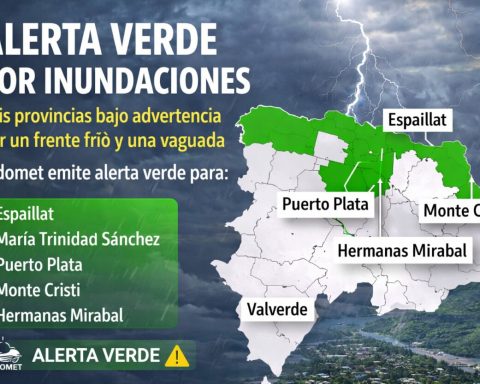With the truckers’ strike and blockades in various regions over and the agreement signed by transporters and the National Government, attention in the local economic context is once again focused on fiscal risks and the increased pressure for resources that the Ministry of Finance must obtain to cover the shortfall in the Fuel Price Stabilization Fund (Fpec). which will no longer be achieved by increasing the price of diesel by $1,904 this year, and another $4,000 next year.
While closing the gap that remains in force in the Fepc It was the Government’s priority to allocate those resources to other sectors such as education or the fight against poverty. The chaos generated by the truckers’ union in the last week led it to reverse the increase of $1,908 that it had already decreed, after which the question is how this will affect the State’s coffers.
More news: ‘We have enough votes to defeat tax reform’: Congress president
Portafolio consulted economists from three universities in the country, who agreed that the agreed increase of $400 this month and another $400 at the end of the year is a temporary stopgap in the face of the delicate fiscal situation and that, on the contrary, the money shortage will only increase by 2025, in a range that, according to each calculation, could go from $7 to $10 billion, adding to the more than $20 billion that have already been warned about.
It’s not a victory
Marc Hofstetter, director of the Center of Economic Development Studies (CEDE) of the University of the Andes, maintains that the first thing that must be made clear is that what happened with the truck drivers is not a victory, since the actions of fact prevailed over the needs of all Colombians and the urgency to guarantee fiscal stability.
Diesel
iStock
“Let’s start with the fact that the government’s accounts are extremely optimistic and the budget that was passed for next year is underfunded. To the income that we have, they now want to add an uncertain tax reform, in calculations that really don’t add up, so now we are facing a battered fiscal outlook,” he explained.
Based on this, he indicated that the most sensible thing to do is to review and adjust the draft General Budget of the Nation for 2025, taking into account that now the country will have less cash solvency because it will have to allocate resources to the fund. of fuels as long as the price of diesel fuel does not increase by $6,000.
Read here: The 14 commitments of the Government with which it was agreed to lift the truckers’ strike
“This miscalculation will subtract $10 billion from the government’s accounts, which were already out of balance by $12 billion. For many, it was short by at least another $10 billion. So, when you start adding all those things up, the government will easily be short $30 billion for that budget. And on the other hand, even if you want to present this as a great victory, this was a tremendous defeat,” said Hofstetter.
It is worth remembering that concepts from authorities such as the Higher Council for Fiscal Policy (Confis) or the Autonomous Committee for Fiscal Rule (Carf), have issued opinions on next year’s Budget, indicating that the deficit in the State’s coffers exceeds $20 billion, while the Ministry of Finance defends its calculations, arguing that the country’s economic dynamics are improving and that they will respect the fiscal rule.

Colombian pesos
Lost ground
Professor Henry Amorocho, an expert in Public Finance from the Universidad del Rosario, made calculations on the changes in the deficit of the Fuel Price Stabilization Fund and highlighted that by lowering it from $1,900 to $800, the shortfall of $12 billion that was to be covered by the first adjustment is reduced to just $5 billion, so the country will have to go out and find the $7 billion that will be missing.
“We have those $12 billion of underfunding that the Government itself recognizes, approximately $10 billion of tax collection deficit, although that data must be completely clear on October 31, and now, with the Fepc deficit, through the Acpm a shortfall of $7 billion is added. So, The figures would thus be concrete in conclusion at $29 billion,” said this teacher.
You may be interested in: ‘The situation of the transporters could have been avoided with a different approach’: Andi
When talking about the Dian’s revenue, according to previous alerts, the focus is on the fact that the Ministry of Finance points out that the management of the tax authority will translate into additional income of $16 billion for the Nation, a calculation that has been criticized because, to begin with, the Directorate has not even begun to hire the personnel needed to strengthen its operational capabilities. In the best of cases, it is said that it would barely reach $6 billion.

Ricardo Bonilla, Minister of Finance and Public Credit
House of Representatives
“This is not an issue to be taken lightly, as there is a lot at stake. fiscal stability and risk ratings. Reducing spending or reviewing debt management alternatives and adjusting operating expenses could be a way out. However, we must work with caution and review all the pros and cons,” said Amorocho.
Blow to investment
A third warning regarding the effects of the agreement between truckers and the Government is issued by the Fiscal Observatory of the Universidad Javeriana, whose experts indicated that “with the increase of $1,900 to the Acpm proposed by the Government, the deficit would close at $10 billion by December 31 of this year.
“In other words, the increase that prompted the protests meant a saving of $1.6 billion. in public resources. This is equivalent to financing a quarter of the resources needed for all public universities in the country. However, with the agreement made today, the numbers have changed: An increase of only $800 at the end of this year leaves us with a total deficit of $11 billion, that is, an additional $1 billion compared to the scenario with adjustment of $1,900,” they explained.
That said, they conclude that “it is not possible that we continue to allocate a large portion of public resources to the Fepc from the taxes paid by citizens and that is why we insist that these resources would be better used in public investment, social programs or education.”
Finally, with these accounts on the table, the announcements by the Ministry of Finance that it cannot lower operating expenses and the inflexibility of the debt, investment is once again presented as the possible great sacrifice in the accounts, a situation that could translate, if it becomes reality, into an economic slowdown that is delayed for longer than it should be.


















